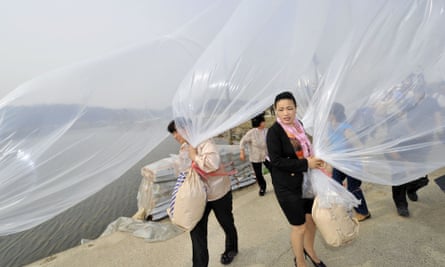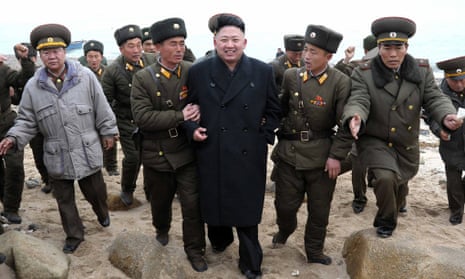The drought in North Korea will have only one consequence if it continues: many of the country’s chronically malnourished population will die.
Yet their deaths won’t change the way the country is run because the two vectors of power in North Korea – Kim Jong-un’s regime and the government of neighbouring China – have no real public opinion to answer to.
In fact, Beijing has the power to dramatically alter the course of history in the DPRK. Because of this, the west needs to put pressure on both capitals and create a new vector of power: information.
New platforms and forms of communication are necessary to reverse a campaign of brainwashing that dates back three generations.
To counter the propaganda slogan used as the title of Barbara Demick’s book Nothing To Envy, North Koreans need to know that they have a very great deal to envy – and to fight for.
Interviews with defectors reveal that many listen to news from shortwave radios, despite fear of severe punishment, and there is a new $50 portable media device providing a window to the outside world – despite the government’s best efforts to isolate its population.
Critics of the state even rely on hot-air balloons to carry anti-regime information across the border, but it’s not enough.

During the second world war, the BBC broadcast to Nazi-occupied Europe and, when that war was won, to Soviet-occupied Eastern Europe. Today, the BBC, hard-pressed as it is, must seriously consider broadcasting into North Korea, just as it is doing in Burma.
According to BBC internal estimates a Korean service – absent of the regime’s narcoleptic guff – would cost around £1m a year to run and a shortwave transmitter would cost about £300,000 a year.
The outside world are regularly bombarded with information about North Korea – culture, sport and news the nefarious workings of the state – but its citizens need to understand more about the true working of their own country too.
So, if the BBC are able to get it up and running, here’s where I suggest they start:
Malnutrition and kidnappings: broadcast that
North Korean statistics may not be reliable but tape measures, that show defectors to be between three and eight centimetres shorter than their South Korean couterparts, are.
The World Food Programme attributes this disturbing reality it on mass malnutrition, from one generation to another. Broadcast that.
Most of the scant information about North Korea comes from defectors and a tiny number of westerners who have been chewed up by the regime. The latest to write a book is Hyeonseo Lee. Broadcast that.
Broadcast, too, the state’s history of kidnapping foreign nationals. In 1978 a Romanian artist, Doina Bumbea, was taken from Italy and forced to travel to North Korea. The best guess for the insane rash of kidnaps was to enhance the regime’s intelligence efforts. .
Once there, Doina was invited to marry James Dresnok, an American GI who had defected to the DPRK in the 1960s and the couple had two sons, Ted and James Jr. Blond-haired, blue-eyed young American-Romanians who speak English with a North Korean accent. Broadcast that.
Italian chef Ermanno Furlanis was flown to North Korea in 1997 at the height of the famine, which one estimate says killed between 600,000 and 2.5 million people, to cook for Kim Jong-il. He was given the finest ingredients flown in from the world’s most expensive shops, banquets of delight washed down with Barolo wine and Remy Martin. Broadcast that.
Necrocracy and political weakness: broadcast that
The long-deceased Kim Il-sung is still thought of as the president of North Korea: the world’s only necrocrat lies in state in his mausoleum still venerated by his people.
Afraid of blowing my cover, I bowed three times in his honour on our trip to North Korea in 2013 – an act of homage I still wrestle with. The mausoleum has constant heat and power, while homes and hospitals battle with constant blackouts. Broadcast that.
The founder’s grandson Kim Jong-un is a punier figure, politically speaking. Killing rivals is a Kim family trait. North Korea expert Adam Cathcart says that doing so openly highlights vulnerability in his leadership, not strength.
Pirate videos, thumb-drives and smuggled phones spread the truth, that in the outside world, people lives unimaginably better lives than they do inside North Korea.
This regime, that looks so strong, is weaker than you think. Broadcast that.
John Sweeney’s book, North Korea Undercover, is published by Corgi in UK and Pegasus in US
Join us at a Guardian Live event on 3 July to hear Hyeonseo Lee talk about her memoir, The Girl With Seven Names. At aged 17, Lee escaped North Korea and returned 12 years later to try and smuggle her family to South Korea
